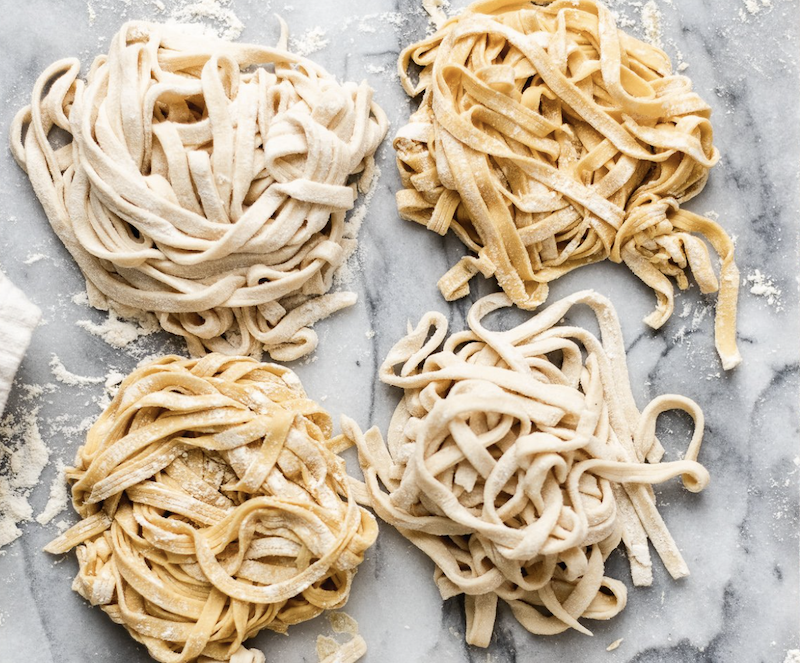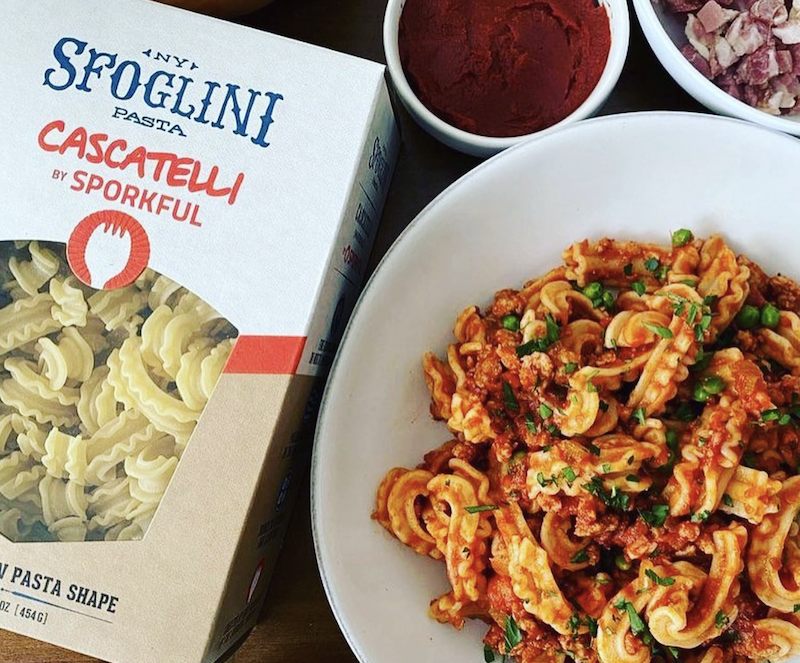From vegnews.com
There are over 300 different types of Italian pasta. Here’s the long and short of these Italian noodles
Be it humble spaghetti or transportive manicotti, pasta is known to make an impression. It can be both struggle food and white tablecloth-worthy, but no matter how it’s presented, Italian noodles are a comfort and a joy to consume. While there are some caveats, pasta in itself is a generally vegan-friendly food, particularly in its dried form (fresh gets a bit iffy, as it often contains eggs—more on that later). With approximately 300 Italian noodles of varying sizes, shapes, and textures, there’s a lot of ground to cover. Here’s what you need to know in regard to which Italian noodles are vegan and how to prepare them in ten deliciously saucy and memorable recipes.
Fresh versus dry Italian noodles
Dried pasta is the most common form of pasta in the US—both in retailers and restaurants. It’s easier to store (no refrigeration needed, unlike the fresh variety), the shelf life is longer (two years versus one to three days), and for restaurants, it’s far more convenient in terms of preparation. Making pasta from scratch requires at least an hour—this includes a minimum 30-minute resting time in addition to mixing the dough and cutting the individual noodles. A dried box variety may take slightly longer to cook by a few minutes, but it’s vastly quicker overall.
The Banana Diaries
Beyond the preparation method, the most significant difference between fresh and dry pasta is the ingredients. Fresh pasta is classically made with egg and high-gluten flour; dry pasta is made with water and durum or semolina flour. The use of egg provides both fat and moisture to fresh pasta, creating a delicate and tender noodle best suited for lighter sauces. Dried pasta is heartier, and while not as silky as fresh, it can better stand up to bold sauces and meaty mix-ins.
To make vegan fresh pasta, the egg is swapped out for water and a touch of olive oil. This addition provides the fat element and leads to a more indulgent bite. Some recipe developers recommend adding a pinch of saffron or turmeric to the dough to replicate the eggy yellow colour. However, this is just for aesthetics and has no effect on the taste or texture of the noodles.
Fresh pasta is most often used for long Italian noodles or dumpling-like pasta such as ravioli or tortellini. Practically speaking, it’s far easier to cut a simple noodle strand compared to a ridged penne or folded farfalle. If you’re eyeing a dish with a short, complex shape on a restaurant menu, you can safely assume it’s made with dry pasta.
The newest Italian noodle shape
Despite the estimated 300 different pasta shapes and sizes, one podcaster and food journalist decided the world needed one more. In the spring of 2021, Dan Pashman launched his five-part mini-series Mission Impastable detailing his laborious and often frustrating project of creating a new, more perfect pasta shape. Spoiler alert: he did it, and you can now find Castcatelli online, in gluten-free form through Banza, and a white-labelled version at some Trader Joe’s. Pashman was in search of a shape that ranked high on his top three pasta values: sauce-ability, fork-ability, and toothsink-ability (or how well sauce clings to the noodle, how easily you can get the pasta on your fork with minimal or no slippage, and how satisfying the bite of the pasta is, similar to mouthfeel).
Sfoglini
The final shape is a short noodle, curled like a hook with wavy ruffles on each of the long sides. The ruffles catch the sauce and the sturdy backbone supports optimum fork-ability and toothsink-ability. No matter where you purchase it, this dried pasta is vegan. We’d love to see how it works in our favourite vegan macaroni and cheese recipe, or rather, with Castcatelli and cheese.
https://vegnews.com/vegan-recipes/taste-tests/vegan-italian-noodles-recipes


No comments:
Post a Comment